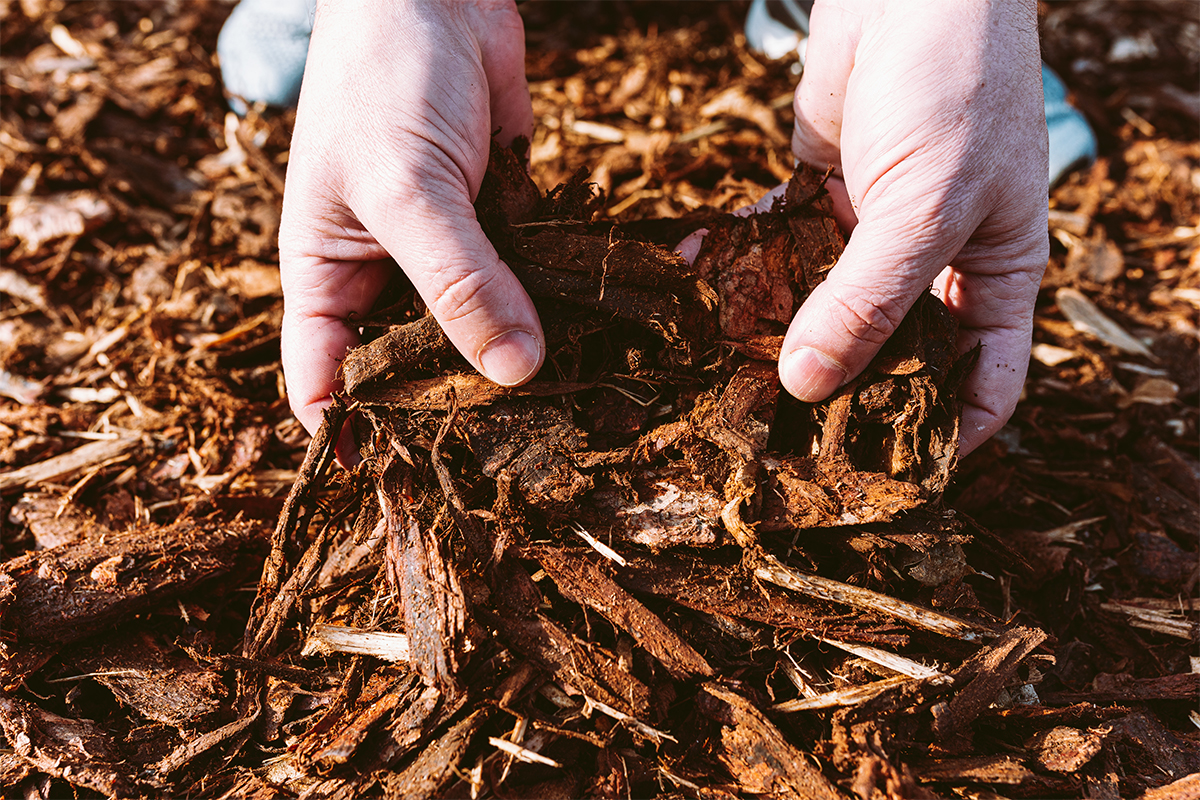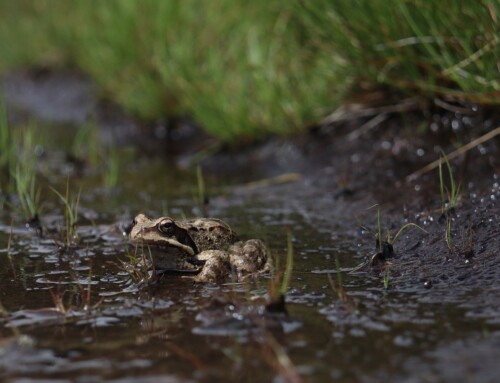Organic mulch plays a crucial role in enhancing soil health by promoting fertility, improving structure, and supporting microbial activity. This natural material, derived from plant residues like leaves, bark, compost, and grass clippings, offers numerous benefits that contribute to sustainable gardening practices and environmental conservation. In this article, we explore the beneficial reasons to integrate organic mulch into your landscape.

Improves Soil Structure: One significant impact of organic mulch on soil health is its ability to improve soil structure. As organic mulch decomposes, it releases organic matter into the soil. This organic matter acts as a binding agent, binding soil particles together into aggregates. These aggregates create pore spaces in the soil, enhancing its aeration and drainage. Improved soil structure allows for better root penetration and water infiltration, which are essential for plant growth and nutrient uptake.
Enhances Fertility: Organic mulch contributes to the overall fertility of the soil. As it decomposes, organic mulch releases essential nutrients such as nitrogen, phosphorus, potassium, and micronutrients into the soil. These nutrients are gradually made available to plants, promoting healthy growth and minimizing the need for synthetic fertilizers. The continuous addition of organic matter also increases the soil’s cation exchange capacity (CEC), which enhances its ability to retain nutrients and make them accessible to plants.
Regulates Soil Temperature: In addition to improving soil structure and fertility, organic mulch helps to regulate soil temperature. During hot weather, mulch acts as an insulating layer, keeping the soil cooler and reducing moisture evaporation. Conversely, in colder weather, mulch provides insulation that helps to maintain soil warmth, which is beneficial for root growth and microbial activity. This temperature moderation contributes to a more stable and favorable environment for plant roots throughout the year.
Retains Needed Moisture: Another critical impact of organic mulch on soil health is its role in moisture retention. Mulch acts as a barrier between the soil surface and the atmosphere, reducing water evaporation and maintaining soil moisture levels. This moisture conservation is particularly beneficial during dry periods or in regions with erratic rainfall patterns. Consistent soil moisture levels support plant hydration and reduce stress, thereby promoting healthier and more resilient plants.
Supports Beneficial Microorganisms: Organic mulch fosters a favorable environment for beneficial soil organisms. The decomposition of organic mulch by microbes and fungi enriches the soil with organic matter and creates habitats for earthworms, insects, and beneficial microorganisms. These organisms contribute to nutrient cycling, breakdown of organic matter, and suppression of harmful pathogens, thereby improving overall soil biodiversity and health.
Encourages Sustainable Practices: The use of organic mulch contributes to sustainable gardening practices by reducing weed growth. By creating a physical barrier over the ground, mulch hinders the germination and growth of weed seeds. This natural weed suppression reduces the need for chemical herbicides, minimizing environmental pollution and promoting a healthier ecosystem.
Improve Soil Health with Organic Products and Amendments
In conclusion, organic mulch significantly impacts soil health by improving structure, enhancing fertility, regulating temperature and moisture levels, promoting beneficial soil organisms, and reducing weed growth. These benefits contribute to sustainable gardening practices, conserve water and nutrients, and support healthy plant growth.
Incorporating organic mulch, compost, and soil amendments into your gardening and landscaping practices not only improves soil health but also contributes to environmental conservation efforts, making it a valuable component of sustainable agriculture and landscaping practices worldwide. The Veransa Group is proud to collect, recycle, and repurpose yard waste of South Florida residents – keeping it out of landfills and contributing to eco-friendly regional practices that benefit the entire community. Click here to learn more about our disposal services and organic landscaping products.



